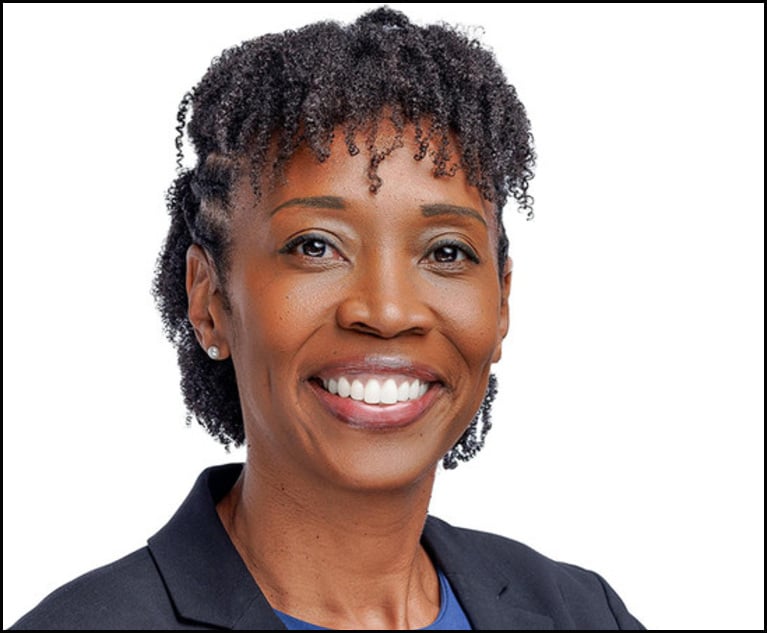3 Things to Know About Connecticut's New Restaurant Wage Law
A new and controversial restaurant wage law took effect in Connecticut this week. Here's what you need to know about the law that spells out how much restaurants must pay their staff for tasks not directly related to serving diners.
January 09, 2020 at 02:02 PM
5 minute read
 Restaurant server. Photo: MNStudio/Shutterstock.com
Restaurant server. Photo: MNStudio/Shutterstock.com
Gov. Ned Lamont's signing into law this week of a new wage bill for restaurants has sparked strong and opposing reactions from Connecticut employment and labor law attorneys.
At the crux of the issue is what Connecticut restaurants must pay servers for nonservice work, such as cleaning dishes and mopping floors.
The law allows restaurants to pay less than the state's $11 hourly minimum wage—and offer $6.38 an hour for waiters and other staff who serve food to customers—because these employees make up the difference in tips.
But the conflict lies in nonservice tasks, how much time servers spend performing them, and if restaurants are cheating staff of out of money due them.
Now, some attorneys say they expect widespread fallout from the new law, which could affect the rights of parties on both sides of the issue.
Here's what lawyers are saying.
1. It's now harder to file class action lawsuits over wages
The law implements new requirements for plaintiffs seeking to file suit as a class.
"The bill does add hurdles to get class certification to bring a lawsuit on behalf of a group of workers," said Pullman & Comley attorney Steve Stafstrom Jr., who also chairs the House of Representatives Judiciary Committee. "There are now additional procedural requirements you have to go through."
For instance, as it stands, and pending guidelines from the state Department of Labor, the law sets new mandates that could require speedier discovery. One example: Before judges can grant class certification, the law requires litigants to show that each individual member of the proposed class performed nonservice duties and that each person was not properly compensated.
And it requires them to show this up front at the time of the request for class certification.
2. Minimum wage protections no longer in play for certain tasks?
Hartford-based employment attorney Richard Hayber said the law is a blow to workers.
The Hayber, McKenna & Dinsmore principal called the new law "decidedly anti-employee."
"This law repeals the rule that nonservice works need to be paid at the full minimum wage," Hayber said. "Restaurants can now be given free license to use servers at the $6.38 minimum wage to perform nonservice work like cleaning, stocking supplies and other things, when they should be getting $11 an hour. There is nothing here for workers."
Called a compromise bill, the law repeals the decades-old rule that nonservice work needs to be paid at the full minimum wage. The state Department of Labor is now tasked with coming up with new language to put in its place.
Connecticut AFL-CIO President Sal Luciano said "What Mr. Hayber describes will not happen."
Luciano did say the state DOL's work with stakeholders to devise new rules for service and nonservice work will ensure fairness to workers.
One of those stakeholders, the Connecticut Restaurant Association, is pleased with the new law.
"The new law is a result of months of discussions between interested parties and puts Connecticut on a path to a better, fairer and more predictable regulatory environment for local restaurants. Once these new regulations are adopted, restaurant operators will have clear rules to follow surrounding wage, which will provide protection to both the employer and employees of our industry," said Scott Dolch, executive director of the association.
Despite their different opinions, attorneys on both sides of the issue agree the current law is aimed at removing ambiguity.
"We believe this law will provide that clarity of when workers can be paid a service wage versus the standard wage," said Stafstrom, who noted that information on the state DOL website left users confused as to whether the federal 80/20 law trumped Connecticut law.
The federal rule allows restaurants to pay at the lower rate, as long as servers spent less than 20% of their time on nonservice work.
"There was confusion in the marketplace," Stafstrom said. "There were some in the restaurant business who were following the 80/20 rules because the Department of Labor guidelines were confusing."
Now state officials are taking steps, including adding staff, to ensure clarity and compliance.
3. Connecticut hired investigators. Will conduct random audits
The new law calls on the state to perform 75 random audits annually of restaurants to show they are in compliance. It also requires the state to hire three additional wage-and-hour investigators in the DOL to investigate employee complaints.
Read more:
Chip's Restaurant Case Before High Court Could Affect Pay for Connecticut Servers
This content has been archived. It is available through our partners, LexisNexis® and Bloomberg Law.
To view this content, please continue to their sites.
Not a Lexis Subscriber?
Subscribe Now
Not a Bloomberg Law Subscriber?
Subscribe Now
NOT FOR REPRINT
© 2025 ALM Global, LLC, All Rights Reserved. Request academic re-use from www.copyright.com. All other uses, submit a request to [email protected]. For more information visit Asset & Logo Licensing.
You Might Like
View All



Trump's Inspectors General Purge Could Make Policy Changes Easier, Observers Say
Trending Stories
- 1GOP-Led SEC Tightens Control Over Enforcement Investigations, Lawyers Say
- 2Transgender Care Fight Targets More Adults as Georgia, Other States Weigh Laws
- 3Roundup Special Master's Report Recommends Lead Counsel Get $0 in Common Benefit Fees
- 4Georgia Justices Urged to Revive Malpractice Suit Against Retired Barnes & Thornburg Atty
- 5How Gibson Dunn Lawyers Helped Assemble the LA FireAid Benefit Concert in 'Extreme' Time Crunch
Who Got The Work
J. Brugh Lower of Gibbons has entered an appearance for industrial equipment supplier Devco Corporation in a pending trademark infringement lawsuit. The suit, accusing the defendant of selling knock-off Graco products, was filed Dec. 18 in New Jersey District Court by Rivkin Radler on behalf of Graco Inc. and Graco Minnesota. The case, assigned to U.S. District Judge Zahid N. Quraishi, is 3:24-cv-11294, Graco Inc. et al v. Devco Corporation.
Who Got The Work
Rebecca Maller-Stein and Kent A. Yalowitz of Arnold & Porter Kaye Scholer have entered their appearances for Hanaco Venture Capital and its executives, Lior Prosor and David Frankel, in a pending securities lawsuit. The action, filed on Dec. 24 in New York Southern District Court by Zell, Aron & Co. on behalf of Goldeneye Advisors, accuses the defendants of negligently and fraudulently managing the plaintiff's $1 million investment. The case, assigned to U.S. District Judge Vernon S. Broderick, is 1:24-cv-09918, Goldeneye Advisors, LLC v. Hanaco Venture Capital, Ltd. et al.
Who Got The Work
Attorneys from A&O Shearman has stepped in as defense counsel for Toronto-Dominion Bank and other defendants in a pending securities class action. The suit, filed Dec. 11 in New York Southern District Court by Bleichmar Fonti & Auld, accuses the defendants of concealing the bank's 'pervasive' deficiencies in regards to its compliance with the Bank Secrecy Act and the quality of its anti-money laundering controls. The case, assigned to U.S. District Judge Arun Subramanian, is 1:24-cv-09445, Gonzalez v. The Toronto-Dominion Bank et al.
Who Got The Work
Crown Castle International, a Pennsylvania company providing shared communications infrastructure, has turned to Luke D. Wolf of Gordon Rees Scully Mansukhani to fend off a pending breach-of-contract lawsuit. The court action, filed Nov. 25 in Michigan Eastern District Court by Hooper Hathaway PC on behalf of The Town Residences LLC, accuses Crown Castle of failing to transfer approximately $30,000 in utility payments from T-Mobile in breach of a roof-top lease and assignment agreement. The case, assigned to U.S. District Judge Susan K. Declercq, is 2:24-cv-13131, The Town Residences LLC v. T-Mobile US, Inc. et al.
Who Got The Work
Wilfred P. Coronato and Daniel M. Schwartz of McCarter & English have stepped in as defense counsel to Electrolux Home Products Inc. in a pending product liability lawsuit. The court action, filed Nov. 26 in New York Eastern District Court by Poulos Lopiccolo PC and Nagel Rice LLP on behalf of David Stern, alleges that the defendant's refrigerators’ drawers and shelving repeatedly break and fall apart within months after purchase. The case, assigned to U.S. District Judge Joan M. Azrack, is 2:24-cv-08204, Stern v. Electrolux Home Products, Inc.
Featured Firms
Law Offices of Gary Martin Hays & Associates, P.C.
(470) 294-1674
Law Offices of Mark E. Salomone
(857) 444-6468
Smith & Hassler
(713) 739-1250










